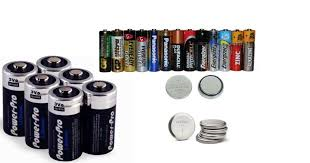
Breaking News
 US Lawmakers Shmooze with Zelensky at Munich Security Conference...
US Lawmakers Shmooze with Zelensky at Munich Security Conference...
 Scientists have plan to save the world by chopping down boreal forest...
Scientists have plan to save the world by chopping down boreal forest...
 New Coalition Aims To Ban Vaccine Mandates Across US
New Coalition Aims To Ban Vaccine Mandates Across US
Top Tech News
 New Spray-on Powder Instantly Seals Life-Threatening Wounds in Battle or During Disasters
New Spray-on Powder Instantly Seals Life-Threatening Wounds in Battle or During Disasters
 AI-enhanced stethoscope excels at listening to our hearts
AI-enhanced stethoscope excels at listening to our hearts
 Flame-treated sunscreen keeps the zinc but cuts the smeary white look
Flame-treated sunscreen keeps the zinc but cuts the smeary white look
 Display hub adds three more screens powered through single USB port
Display hub adds three more screens powered through single USB port
 We Finally Know How Fast The Tesla Semi Will Charge: Very, Very Fast
We Finally Know How Fast The Tesla Semi Will Charge: Very, Very Fast
 Drone-launching underwater drone hitches a ride on ship and sub hulls
Drone-launching underwater drone hitches a ride on ship and sub hulls
 Humanoid Robots Get "Brains" As Dual-Use Fears Mount
Humanoid Robots Get "Brains" As Dual-Use Fears Mount
 SpaceX Authorized to Increase High Speed Internet Download Speeds 5X Through 2026
SpaceX Authorized to Increase High Speed Internet Download Speeds 5X Through 2026
 Space AI is the Key to the Technological Singularity
Space AI is the Key to the Technological Singularity
 Velocitor X-1 eVTOL could be beating the traffic in just a year
Velocitor X-1 eVTOL could be beating the traffic in just a year
Lithium metal battery prototype boasts 3 times the capacity of lithium-ions

But current lithium-ion battery technology is nearing its limits and the search is on for a better lithium battery. But one thing stands in the way: dendrites. If a new technology by Rice University scientists lives up to its potential, it could solve this problem and enable lithium-metal batteries that can hold three times the energy of lithium-ion ones.
Dendrites are microscopic lithium fibers that form on the anodes during the charging process, spreading like a rash till they reach the other electrode and causing the battery to short circuit. As companies such as Samsung know only too well, this can cause the battery to catch fire or even explode.
"Lithium-ion batteries have changed the world, no doubt," says chemist James Tour, who led the study.

 Going the Way of the Denarius
Going the Way of the Denarius

